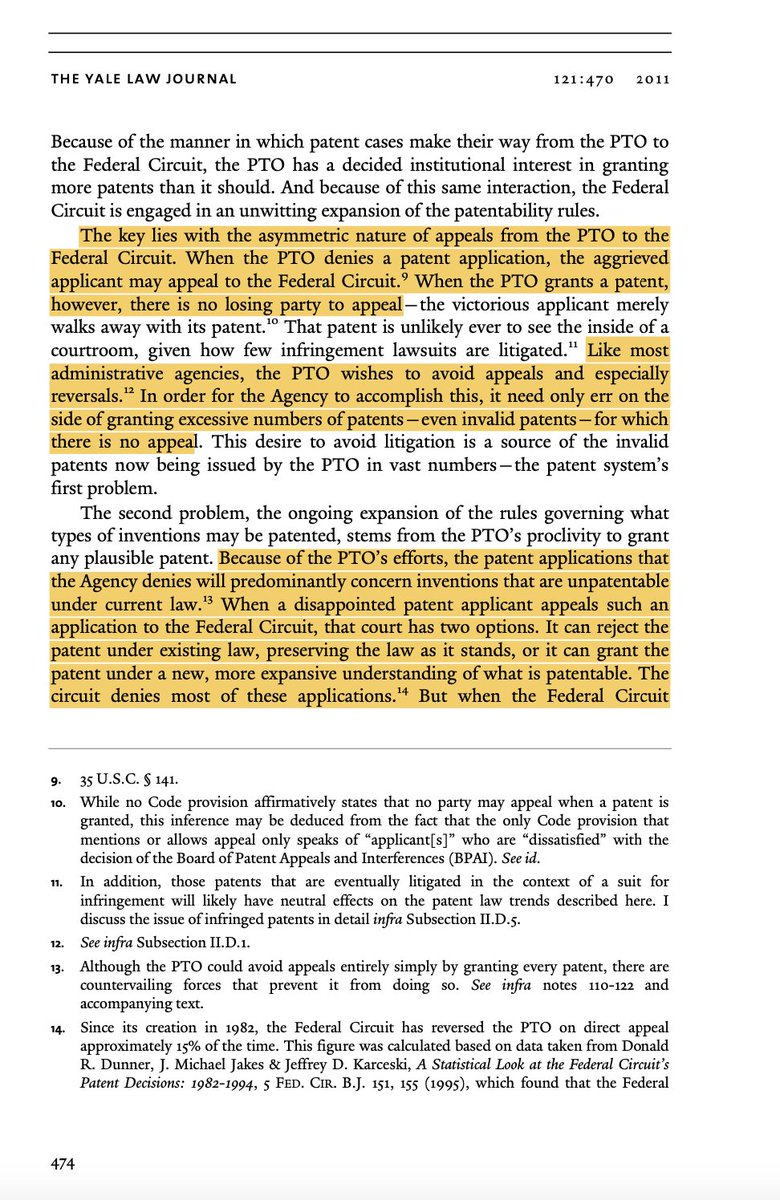
🧵What is "CEQA sprawl," and is there a way to stop it?
tl,dr: It's the transmogrification of an enviro review statute into a NIMBY stop-everything (even education!) statute.
One way to fix it is w/ private right of action against legally excessive CEQA review. 1/16
tl,dr: It's the transmogrification of an enviro review statute into a NIMBY stop-everything (even education!) statute.
One way to fix it is w/ private right of action against legally excessive CEQA review. 1/16
As enacted in 1970, CEQA established a commonsense requirement for environmental study prior to major public projects w/ serious enviro consequences. /2
It now requires exhaustive, costly, time-consuming studies & serious litigation risk basically anytime anyone proposes to build or permit anything near rich people or or "well trained" interest groups. However benign the project.
Try running a university in Berkeley. /3
Try running a university in Berkeley. /3
How'd we get from A to B? Part of the story is that the CA Supreme Court of the late 1960s and early 1970s was a devotee of antigrowth environmentalism. It read CEQA very broadly. /4 







But much CEQA sprawl came later, and courtesy of the Court of Appeal. (E.g., reading CEQA to negate the Permit Streamlining Act, using "equitable" doctrines to defang the CEQA timelines, treating ordinary urban congestion as an "enviro" impact.) /5
papers.ssrn.com/sol3/papers.cf…
papers.ssrn.com/sol3/papers.cf…
My best guess is that this CEQA sprawl was largely due to asymmetric litigation risk.
If a city or a developer errs on the side of not enough enviro study, it faces a significant risk of litigation from project opponents. If it errs the other way--requiring too much... /6
If a city or a developer errs on the side of not enough enviro study, it faces a significant risk of litigation from project opponents. If it errs the other way--requiring too much... /6
enviro review--it faces essentially no litigation risk from proponents. (Admin law doctrines like exhaustion and finality are barriers; also, developers generally don't want to piss off an agency from which they're seeking a discretionary permit.) /7
When only one type of error is subject to judicial correction, the law tends to overcorrect, or sprawl, in that direction.
@jonathanmasur's marvelous paper on "patent inflation" illustrates this point beautifully. /8

@jonathanmasur's marvelous paper on "patent inflation" illustrates this point beautifully. /8


As Masur explains, only patents denied, not patents issued, are appealable. Thus the patent agency errs on side of issuing patents, and new law is made in cases challenging denials & pushing limits of what is patentable. "Patent inflation" (too much IP protection) results. /9
So too w/ CEQA. A developer denied an exemption or made to study a trivial issue can't sue, but a city that grants the exemption or fails to require study of that issue faces some litigation risk. Even if cities win in most cases, the new law that's made... /10
now and then comes in cases where plaintiffs argued that enviro review was inadequate, never in cases where plaintiffs attacked enviro review as excessive. So, bit by bit, the law sprawls toward ever-more-demanding standards for "enviro" review. /11
What's the solution? One option is to eliminate private CEQA litigation, as @TaplinTerry suggests. Some European countries have administrative enviro review frameworks w/o private litigation (and they do way better building public infrastructure). /12
https://twitter.com/TaplinTerry/status/1494833253294899202
Much less radically, CA could authorize private litigation by project proponents in cases where a permitting agency refuses to sign off on a legally sufficient environmental study. /13
@TDuncheon & I have argued that California's Housing Accountability Act already authorizes some such claims (by proponents of qualifying housing projects), @California_HCD's recent letters to San Francisco seem to embrace our view. /14
papers.ssrn.com/sol3/papers.cf…
papers.ssrn.com/sol3/papers.cf…
But the law isn't clear, and it would be a simple thing for the Legislature to fix it, defining "disapproval" within meaning of HAA to include city's refusal to certify a legally sufficient CEQA review for a qualified project. /15
An HAA-specific fix wouldn't directly solve UC Berkeley's problems, since most campus projects aren't housing projects. But countervailing litigation pressures in housing cases would, over time, probably result in courts trimming back some of CEQA's excesses. /end
@Scott_Wiener @BuffyWicks @Jason_Elliott @samassefa @GVelasquez72 @CaHousingGuy @michaeldlane @hanlonbt
• • •
Missing some Tweet in this thread? You can try to
force a refresh










